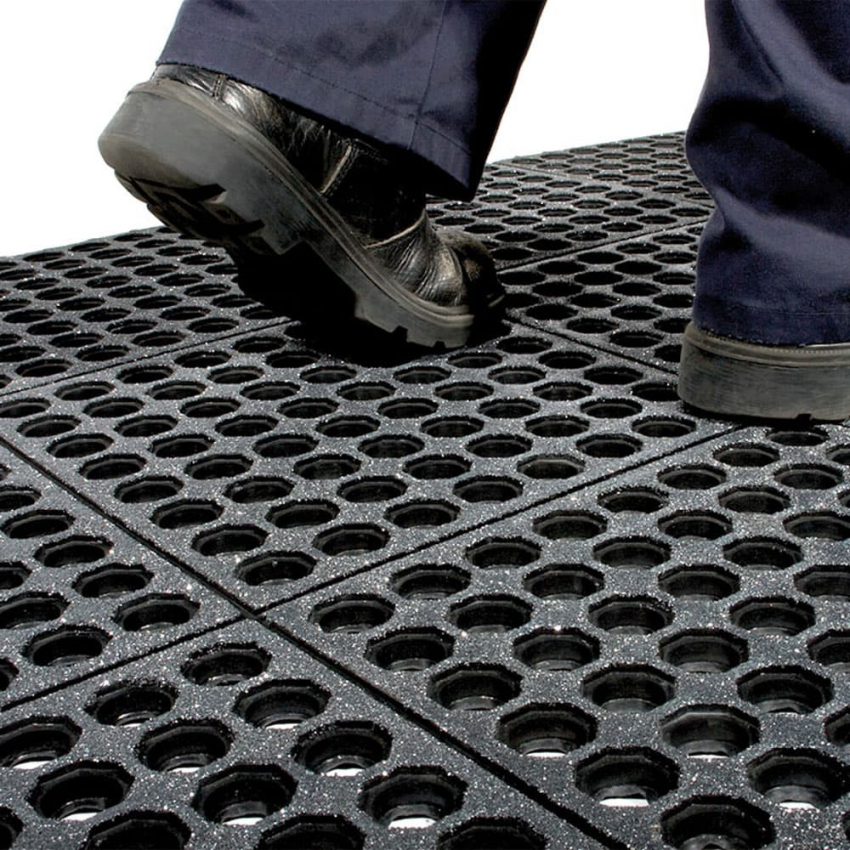













Anti-fatigue tiles with non-slip properties. Sturdy nitrile interlocking tiles for very intensive use. Thanks to its granular surface, this mat provides exceptional grip, even in the presence of oily substances (drainage holes). High level of comfort to reduce lower-limb pain associated with static standing.
Available in 90 cm x 90 cm tiles. Optional sloping edges in yellow or black.
Extremely resistant modular tiles for use on heavily loaded surfaces. The use of nitrile rubber ensures perfect resistance to oils and chemicals. The top surface, coated with silicon carbide, ensures exceptional adhesion even in the presence of oily substances. The product guarantees a high level of comfort, reducing fatigue when standing and walking.
Cleaning: Pressure hose with mild detergent
Suitable for wet and dry environments. Resistant to welding spatter and other hot materials.
Loose laying by interlocking tiles.
Beveled edges in yellow or black.

| FATIGUESTEPGRITTOP |
Data sheet
| Format | Slabs |
| Surface | Openwork |
| Properties | Anti-fatigue Non-slip |
| Thickness | 18 mm |
| Resistant to chemicals | Yes |
| Environment | Oily environments Wetlands |
| Intensity of use | Very intense |
| Wear index | 3/3 (Excellent) |
| Anti-slip classification | R13 |
Industrial mats meet the needs of ergonomic workstations and employee well-being.
They prevent:
There are many uses for industrial mats:
Safety criteria: The mat must cover the entire workstation, be firmly attached to the floor, not shift or slide, and have bevelled edges to prevent falls.
Thickness and flexibility criteria: Contrary to what you might think, you shouldn't choose a very thick or very soft mat. The mat should have a certain elasticity, but still allow a comfortable standing position, without the user feeling slumped.
Environmental criteria :
Environmental hazard criteria : To establish more precise characteristics for a mat (antistatic properties or fire resistance etc...) we need to take into account the hazards present in the environment where the mat will be installed.
Where hazardous liquids are present in the working environment, the anti-slip properties and chemical resistance of industrial mats should be taken into account. The presence of openings on mats to allow the evacuation of fluids is essential.
Traffic criteria: We need to take into account the traffic that takes place on the equipment: how many workers can walk on it? How often, etc., in order to choose the most suitable mat.
Prevent the many problems associated with poor workstation ergonomics: RSI, static shock, bacterial proliferation, etc.
We offer a wide choice of industrial mats: on rolls, in standard sizes, made-to-measure or modular mats to suit all types of workstations.